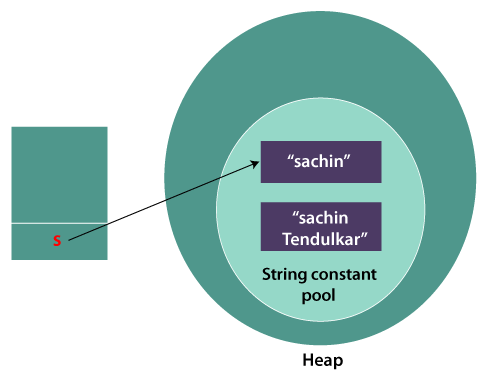Unalterable Strings: A Secret Element in Ensuring Information Uniformity and Reliability
In the world of information management, the value of immutable strings can not be overemphasized. These imperishable sequences of characters play a pivotal duty in promoting the stability and accuracy of information within systems. By preserving a state of immutability, data consistency is made certain, promoting a foundation of dependability upon which critical processes count. The concept of immutable strings goes beyond plain technicality; it is a cornerstone in the complex internet of data governance. As we check out the benefits, implementation methods, and useful applications of immutable strings, a clearer image emerges of their indispensable nature in securing the digital landscape.
The Concept of Unalterable Strings
Unalterable strings, a basic principle in programming, refer to strings that can not be customized once they are created. Fundamentally, as soon as a string worth is designated, any operation that shows up to customize the string actually produces a new string. This immutability guarantees data uniformity and integrity in applications, as it stops unanticipated modifications to the initial data.
Advantages in Information Uniformity

Data uniformity is important in numerous aspects of software application development, including database monitoring, multi-threaded environments, and distributed systems (Why are strings immutable in Java?). Unalterable strings add substantially to accomplishing this consistency by preventing information corruption due to concurrent accessibility. In scenarios where multiple procedures or threads connect with the very same data concurrently, unalterable strings act as a protect against race problems and synchronization issues
Furthermore, the immutability of strings simplifies debugging and screening processes. With immutable strings, developers can trust that once a string is set, it will continue to be unmodified, making it less complicated to map the resource of errors and making certain that test instances produce regular outcomes. This dependability in information taking care of ultimately causes a lot more robust and steady applications.

Carrying Out Unalterable Strings
Ensuring the immutability of strings calls for a thoughtful strategy to their execution in software advancement. As soon as a string object is developed, one vital strategy is to create string classes in a method that protects against alterations. By making strings unalterable, designers can boost information consistency and reliability in their applications.
To carry out immutable strings efficiently, programmers must favor producing new string things as opposed you can look here to modifying existing ones. This method ensures that as soon as a string is assigned a worth, it can not be changed. In addition, any procedure that appears to change the string important site should produce a new string with the wanted modifications rather of changing the original.
Moreover, utilizing unalterable strings can simplify concurrency administration in multi-threaded environments. Since immutable strings can not be changed after development, they can be securely shared among several threads without the risk of data corruption.
Duty in Integrity Guarantee
In software development, the usage of unalterable strings plays a vital role in guaranteeing the dependability of information operations. Unalterable strings, once created, can not be modified, ensuring that the data they represent continues to be regular throughout the application's implementation. This immutability building gives a degree of guarantee that the information being refined will not be accidentally changed, bring about unanticipated end results or mistakes in the system.
By incorporating immutable strings into software style, programmers can enhance the dependability of their applications by decreasing the threats linked with mutable data - Why are strings immutable in Java?. Immutable strings help in protecting against data corruption or unintentional modifications, which can be especially crucial when dealing with delicate info or when data honesty is extremely important
Additionally, using immutable strings streamlines simultaneous handling, as several strings can securely gain access to and share link string information without the danger of one thread modifying the content while another reads it. This facet contributes considerably to the total dependability of the software program system, guaranteeing consistent and foreseeable habits in information dealing with operations.
Applications and System Integration
The smooth integration of unalterable strings into numerous applications and systems is critical for making sure robust information uniformity and reliability throughout diverse technical environments - Why are strings immutable in Java?. Immutable strings play an important function in boosting the integrity of information exchanges and interactions within complex software application communities. By integrating immutable strings right into applications, developers can reduce the risks related to information meddling, unapproved modifications, and unintended modifications, consequently strengthening the total safety position of the system
Unalterable strings can enhance interoperability in between diverse systems by supplying a standardized format for data depiction, making it possible for extra reliable information processing and exchange methods across interconnected platforms. By embracing immutable strings in applications and system assimilation processes, organizations can strengthen their data facilities and promote the dependability and uniformity of their details assets.
Verdict
Finally, unalterable strings play an essential duty in preserving information uniformity and dependability in numerous applications and system assimilations. By guaranteeing that strings can not be transformed when produced, the stability of information is preserved, decreasing the risk of mistakes and inconsistencies. Executing immutable strings can significantly enhance the integrity of systems, ultimately leading to more reputable and precise data processing.
